Another day at Assumption Abbey begins. Brother Louis has a doctor’s appointment this morning, nothing serious, so I have the morning free from work. I have been designated Brother Louis’ helper which I am finding to be a good thing. He tends to farming and practical needs, allowing tractor rides and exploring of all aspects of the abbey. Confidence comforts in that I have skills to offer the abbey. My electrical industrial maintenance background provides utilitarian real-world skills; knowledge and experience necessary for the upkeep of a farm and compound the size of the abbey. I know nothing about farming nor cattle, yet I am happy and hungry to learn, understanding my extensive background in electrical, mechanical, welding, and large equipment operation aligns fittingly with the farmer personality of Brother Louis and other of the monks raised on farms and ranches. Although I was already mocked for the way I pick tomatoes, tagged the wandering picker. I guess it is important to have a system and order to your picking. I just sort of move here and there searching out the color red. The other aspect of my personality, the cultured, artistic, and intellectual side is also nourished. There is no shortage of men serious in education, cultural pursuits and cerebral efforts. Father James particularly fascinates intellectually, while others Brother Michael, Brother Elias (cantankerous, yet I sense brilliance), Brother Jacob, many of the priests and brothers—overall the mature men are of stout quality and character. I should also mention a gentleman on retreat, an oblate who stays at the abbey twice a year. He is an accomplished violinist who taught at the Cleveland Institute of Music for a short period. Currently residing in Minot, North Dakota, he was familiar with St Paul Shrine, the Feast of the Assumption in Little Italy, and other cultural aspects of East Cleveland. I still have not identified the author of the novel that was a part of my focusing upon Assumption Abbey, and most pleasing is the fact I feel no need to single him out. Artistic intrigue is provided by Brother Lewellyn, artist in residence, a painter and pottery maker. His studio is fascinating, overflowing with activity, works, and wonder. I know artists and within his core he is an artist. After living at the Collingwood Arts Center, I find his work invigorating simply based upon dedication to faith and his strong work ethic. He demonstrates the fact creative efforts can induce spiritual growth. I am convinced the majority of modern artist and musicians stagnate in an overwhelming existential attachment to individuality, overwhelmed consumingly by pride, insecurity, and basically fear to the point they self-destruct. There is a crushing need to be original in a world were being original and weird has amassed to conformity. In truth, those dedicating their lives to creativity create destruction within their own lives and those who love them. Brother Lewellyn lives a different life as a Benedictine monk. He operates a large gas kiln that he mentioned automating, a project I would be honored to be a part of. His process of firing his pottery at this time is based on observation and manual controlling of the gas valve. Witnessing his methods, I realized the firing of the pottery is truly just as creative as the sculpting. He produces effects such as placing a leaf, horse hair, and other objects on the clay at certain temperatures, depriving oxygen, thus burning into the clay the image of the object placed upon it. I will be taking photos of his studio, hopefully today. Brother Gregory has a woodworking shop in which I will also conduct a photo shoot. The abbey is a bustling place of activity.
The prayer life, the aspect determining permanency, I would like to touch upon, it is where I left off my thoughts yesterday morning. The quote from Saint Alphonsus Rodriguez telling of the obedience of St Stylites is worth mentioning. I was moved by the fact the St Stylites abandoned his extreme spiritual exercise, living upon a pole, when questioned by his superiors the desert fathers. Without a second thought, similar to Our Lady’s fiat, he acquiesced personal spiritual convictions through overriding respect for the hierarchy of the church. In compliance to truth and maturity, the church officials determined his calling based solely upon his ability to demonstrate such severe obedience. The lesson I take from the telling is that personal spiritual exercises cannot breakdown the workings of the church. God’s voice must not be drowned out by individual machinations pushing forth private ideas regarding proper spiritual exercises and thought. The spiritual obstacle I stumble upon in regards to Assumption Abbey is the lack of devotion to daily Eucharistic Adoration. My spiritual life is centered upon the Eucharist, daily adoration carrying my faith, hope, and charity. I posted the chapel tabernacle for a precise reason last night. I can sit in the chapel, within ten feet, of the tabernacle, quiet in prayer and proximity to the hidden Eucharist. Last night, I found the experience appealing. Out in the world, employed secularly, settling into Cleveland, overwhelmed by the emotional and spiritual immaturity of Ann, I needed the exposed Eucharist daily. The nurturing provided was necessary in a confronting a noisy world; conditions and experiences that provided little comfort and nothing of a deeper love. A move to North Dakota, an advancement in emotional, psychological, practical, social, and spiritual conditions, I no longer need to feed upon the teat. St Paul explains in 1 Corinthians But I, brethren, could not address you as spiritual men, but as men of the flesh, as babes in Christ. I fed you with milk, not solid food; for you were not ready for it; and even yet you are not ready, for you are still of the flesh. To move to North Dakota, to present myself for admittance to Assumption Abbey, is to acquiesce to their ways. Prayer before the reposed Eucharist must be viewed as a challenge from God to strengthen my love, to center myself in deeper through, with, and in faith, hope, and charity. I must be willing to abandon God in order to draw closer to God.
A spiritual exercise in reading: in the world contemplative Eucharistic relationship composed with how I perceive religious life at Assumption Abbey relating to the Eucharist. All wonderfully presented in one paragraph by Father Thomas Philippe in a book attained from the abbey library, an author I knew nothing about before my visit.
CURRENT:
The solitary contemplative, occupied exclusively with staying near to God, finds an incomparable treasure in the Eucharist. The Divine Presence is the great theme that commands his whole life. A contemplative is not one who acts, who does something, even something holy, but rather one who lets himself be filled…Peter symbolizes the active life, because he loves Jesus; John, the contemplative life, because he is loved by Jesus. The contemplative remains at the feet of the Savior.
PROPOSED:
The contemplative remains in the presence of the Invisible. The Sacred Host is the efficacious sign of the guest who is hidden. It both sustains the faith of the contemplative and stimulates his love. It is difficult to remain still and silent in the presence of The Invisible; the Blessed Sacrament is our support.
Gospel of John tantalizing: And after this he said to him, “Follow me.” Peter turned and saw following them the disciple whom Jesus loved, who had lain close to his breast at the supper and had said, “Lord, who is it that is going to betray you?” When Peter saw him, he said to Jesus, “Lord, what about this man?” Jesus said to him, “If it is my will that he remain until I come, what is that to you? Follow me!”

Brother Louis and one of his tractors
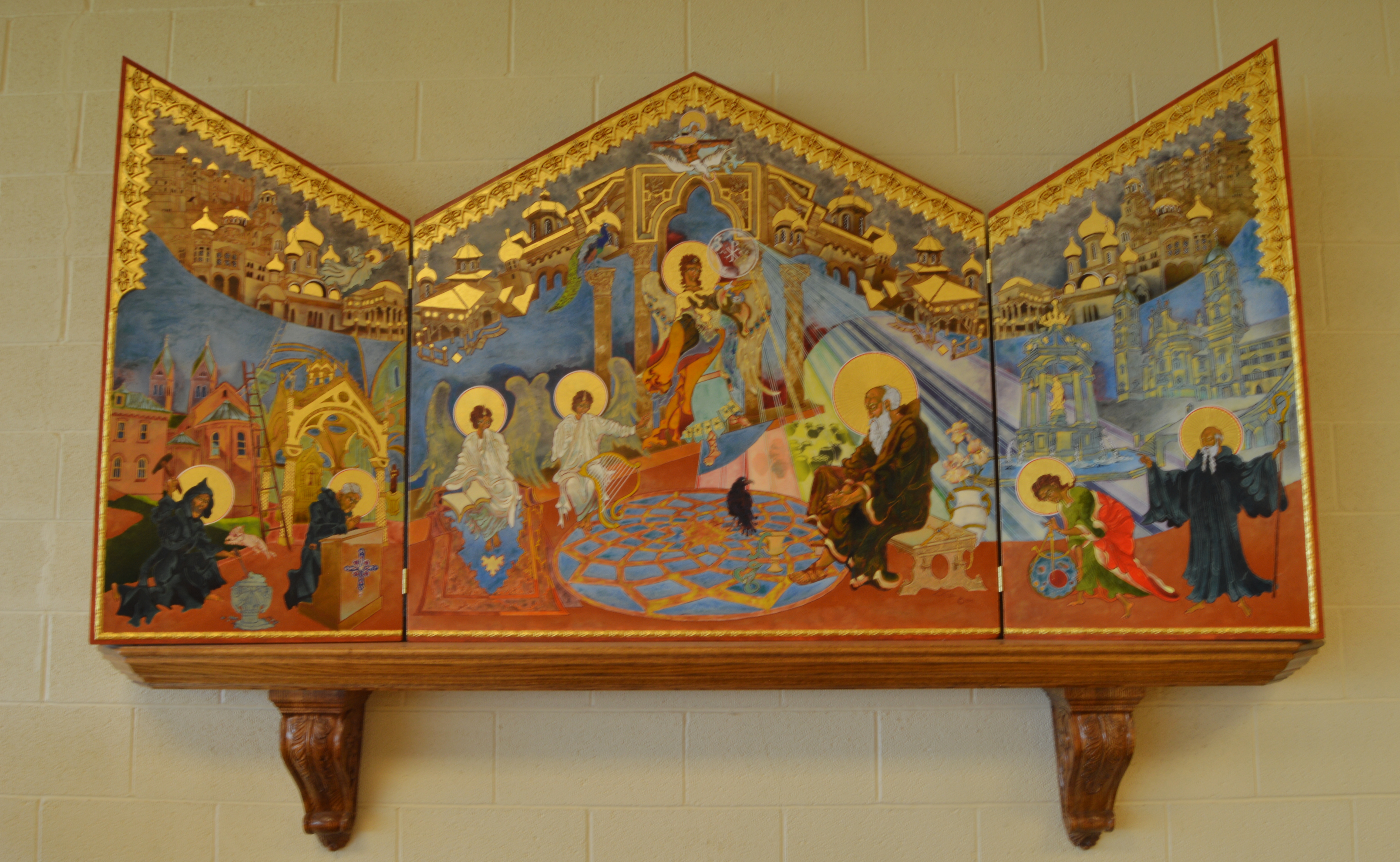
Brother Lewellyn painting


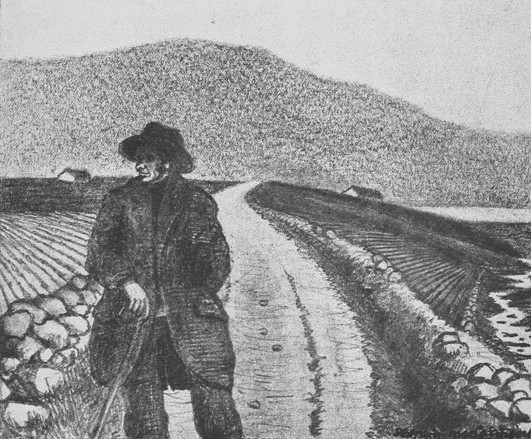
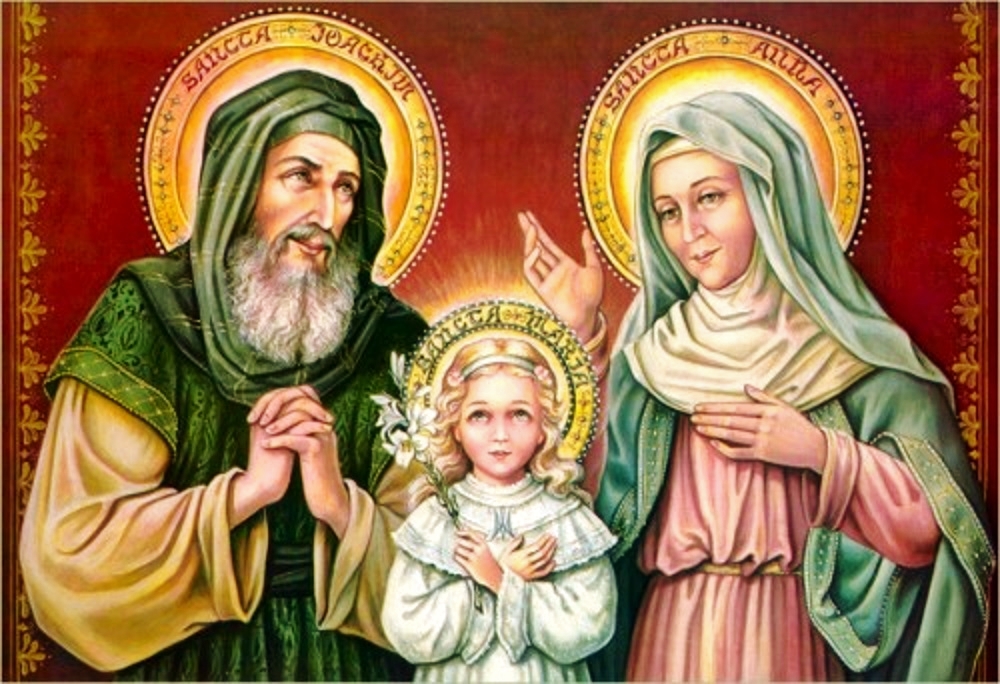


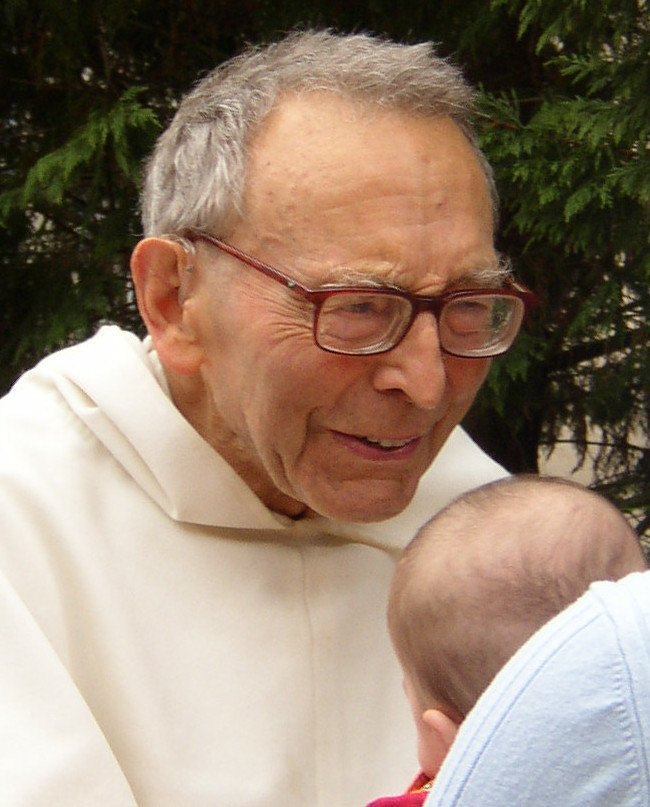
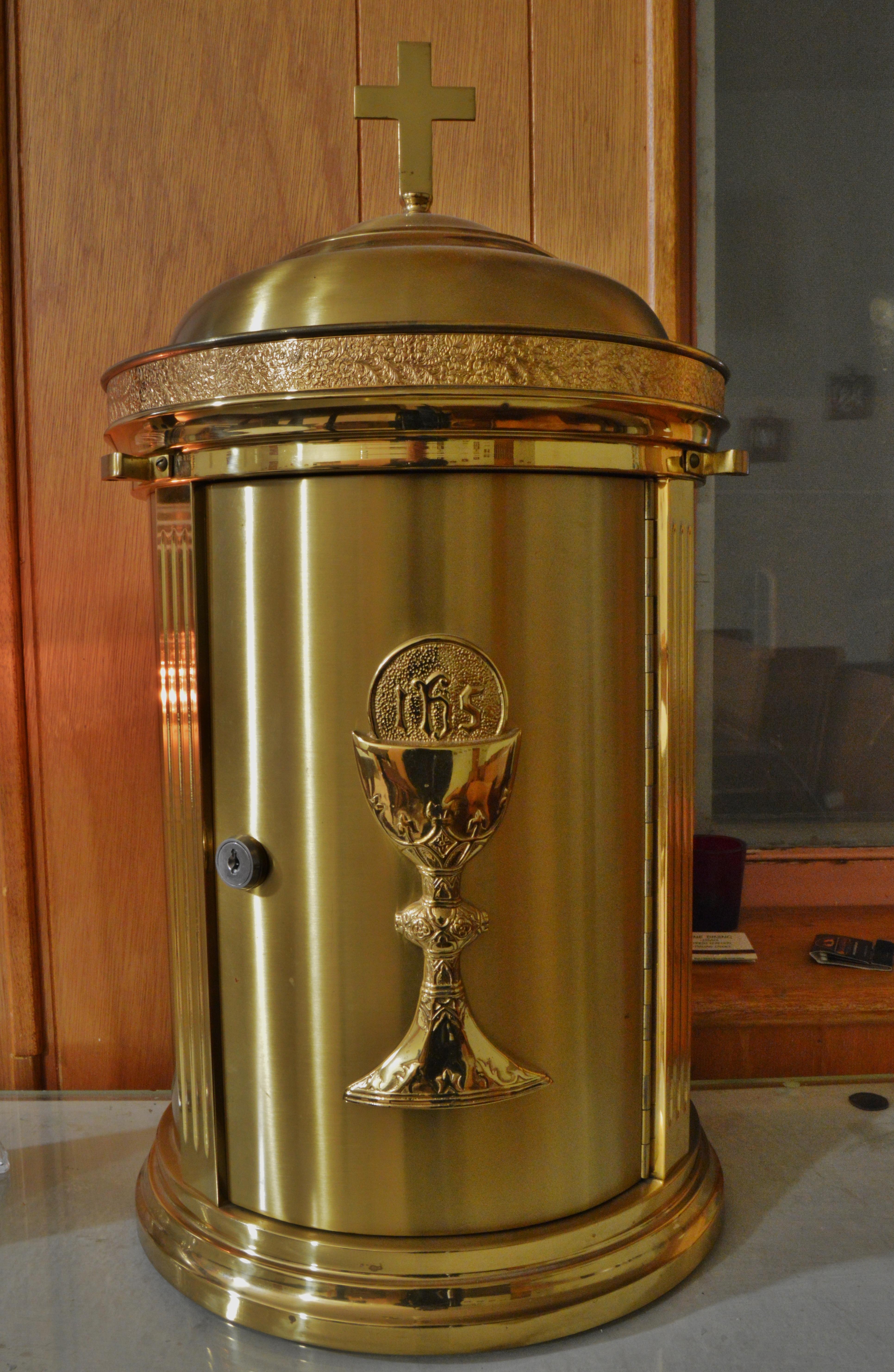
Recent Comments